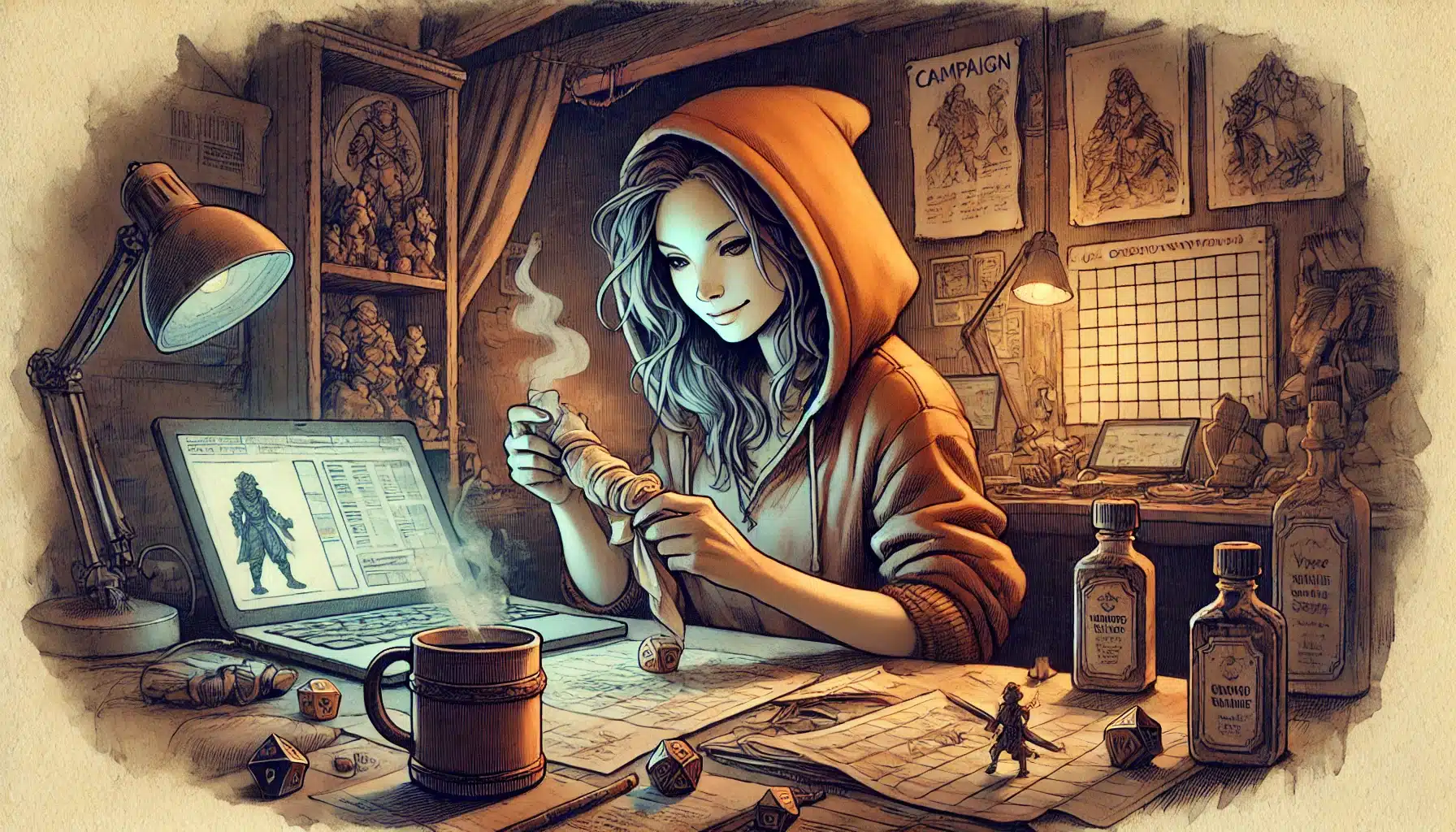Veteran Dungeons & Dragons players have outgrown the dopamine hit of an experience point ticker. They’ve bested dragons, disarmed deathtraps, and pored over the Player’s Handbook so many times that spell lists now haunt their dreams. For these savvy adventurers, progression no longer revolves around increments on a character sheet. Instead, what propels them forward is profound—story-driven rewards, creative latitude, mechanical quirks, and the thrill of shaping the world around them.
This shift from progression to expression marks a new era of play. Seasoned players yearn for arcs that test their ideals, opportunities to rewrite history, or moments of moral ambiguity that stick with them long after the dice cool. Inspiration comes not just from gaining the next feat, but from closing tragic chapters, making world-altering decisions, and achieving goals only they could envision. Party cohesion, personal victory, undeniable legacy—these are the treasures sought when XP alone feels hollow.
More than ever, experienced players crave narrative consequences. They light up when their rival’s schemes hit home, when city streets whisper their name, or when their failures ripple through the campaign in unexpected ways. The deeper the stakes, the richer the play. Numbers cannot measure the satisfaction of vengeance rendered, mysteries unraveled, or forgiveness earned.
This article arms Dungeon Masters with 11 robust, flexible reward models designed to keep veteran players eager and engaged. Here you’ll find ideas for story arcs and leadership, unique magic and forbidden knowledge, social influence, and more—concepts meant to elevate your campaign from a numbers game to a living, breathing story. Each type is crafted to resonate, offering hooks for agency, narrative gravitas, and transformative impact. Let’s dive in.
- 1. Character-Specific Story Arcs
- 2. Social and Political Influence
- 3. Custom Magic Items with Lore
- 4. Leadership Opportunities
- 5. Unique Mechanical Perks
- 6. Property and Holdings
- 7. Legacy and Reputation
- 8. Access to Forbidden Knowledge
- 9. Unique Allies and Companions
- 10. Character Milestones Without Leveling
- 11. World-Altering Choices
- Final Thoughts on Non-XP Rewards
1. Character-Specific Story Arcs
Nothing resonates with advanced players quite like seeing their character at the very heart of the narrative. Instead of showers of gold or XP, reward investment by intertwining personal backstory with the campaign’s unfolding tapestry. These arcs can manifest as a sibling’s sudden reappearance, an ominous prophecy, or the unraveling of a decades-old betrayal—threads plucked straight from a player’s history, now poised to reshape their destiny.
The key is to make such story arcs optional, not obligatory. They should be potential stages for grand drama—triggered by player choices, milestones, or their own curiosity. The assassin might stumble upon a symbol from her lost homeland. The warlock could finally cross paths with the enigmatic, manipulative entity from their pact. These stories should offer meaningful change or catharsis, but not feel forced—let them grow organically.
Try my AI Tabletop RPG generators...and an extensive library of content!
Resolving a personal mystery or vendetta can provide deep satisfaction well beyond mechanical advancement. Did the character finally lay a restless ghost to peace, or seize vengeance against the adversary who marred their childhood? The true magic lies in letting players make the call: confront old demons, accept forgiveness, or forge new enmities. These moments are often what players recount years after a campaign ends.
Below are 10+ types of character-centered story arc rewards:
- The sudden return of a presumed-dead sibling demanding justice or forgiveness.
- Unraveling a prophecy in which the character is both the ruin and salvation of a city.
- Discovering the true origin—and curse—of a signature weapon.
- Learning that their parent secretly leads a rival cult or faction.
- Unmasking a lifelong mentor as a traitor or celestial in disguise.
- Bringing closure to past trauma by freeing captives from a slaver’s den.
- Meeting a childhood friend turned antagonist with conflicting loyalties.
- Willingly accepting (or rejecting) their foretold destiny, at great cost.
- Reclaiming an ancestral home now overrun by monsters.
- Watching a nemesis beg for help when the tables finally turn.
- Solving the cold case of their family’s mysterious poisoning.
- Facing judgment before a supernatural tribunal for old crimes.
- Helping a former enemy seek redemption—perhaps through self-sacrifice.
These bespoke story arcs are potent not because they hand out artifacts or XP, but because they infuse the game with identity and emotional weight. A well-crafted personal journey can ignite incomparable attachment between the player and their character, often elevating the narrative for everyone at the table.
Such rewards don’t touch the mechanics or tip the power balance. Instead, they strengthen a player’s sense of belonging, their motivation to act, and their attachment to the world. The game becomes less a math problem and more a tapestry of choices, memories, and consequences—a saga tailored to the heroes at its center.
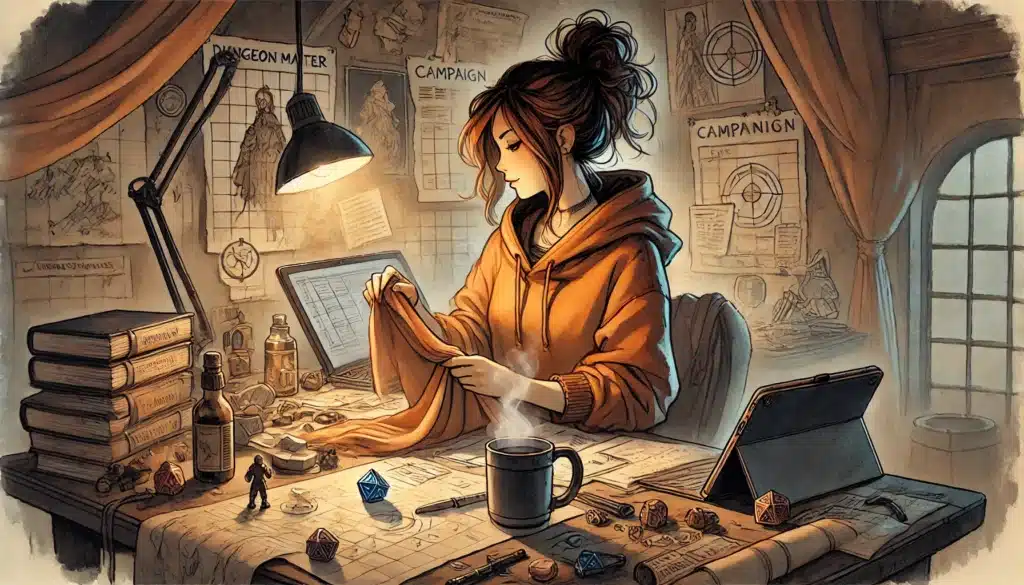
2. Social and Political Influence
Experienced D&D players often dream much bigger than dungeons and hoards; they want to pull the very levers of power, shape the destinies of cities, guilds, and nations. Offering influence as a reward lets savvy players see the far-reaching ripples of their diplomatic finesse, battle prowess, or charismatic leadership. Sometimes a subtle word at court, other times a bold revolution—the right nudge can change everything.
⚔️ Fantasy RPG Random Tables Books
Make life as a Gamemaster easier…
If you play Dungeons & Dragons, Pathfinder, or other fantasy RPGs, this
RPG random tables series
is packed with encounters, NPCs, treasure, and more. Available in eBook or print—either way, you’ll have a wealth of adventure ideas at your fingertips.
These rewards are best given to players who invest in roleplaying, parleying, or leading. Perhaps your bard has outwitted a council of nobles, or the paladin’s justice reforms criminal law in a bustling city. When adventurers shift tides at the big table—swaying public opinion, brokering peace, or sparking intrigue—they earn more than gold; they earn a place in history.
The imaginative scope here is nearly endless. Influence may come as control, titles, or the intangible sway of reputation. Imagine a rogue being granted the ear of thieves’ guilds across the kingdom, or a wizard quietly steering the arcane college’s agenda. A well-timed rumor or clever alliance can be the very currency of power.
Embrace the depth and texture of such achievements by crafting vivid, evolving consequences—both perks and hazards to their newfound authority. Here are 12+ ways to reward players with social and political influence:
- Being named ambassador to a rival kingdom.
- Founding a knightly order or secret society.
- Swaying a high council vote after impassioned oration.
- Earning an open audience with monarchs or archmages.
- Appointed as magistrate over lawless territories.
- Securing trade rights for a favorite faction.
- Receiving noble titles and lands (with political headaches attached).
- Installing a puppet ruler sympathetic to the party’s cause.
- Becoming subject of popular ballads, both reverent and scandalous.
- Being invited into the city’s inner circle for confidential counsel.
- Having their likeness minted onto local coinage.
- Earning lifelong immunity for themselves or their followers.
- Overseeing a diplomatic mission with world-altering stakes.
Track this influence not just as a static boon, but as a living aspect of your world. Favor can sour, power attracts rivals, and every decision builds a dynamic legacy. Let the consequences be as thrilling as the reward: courtly plots, sudden reversals, or sweeping reforms that reshape the campaign’s landscape.
By rewarding social and political influence, DMs give players meaningful ways to shape events—genuine stakes where their words, decisions, and alliances matter. The story becomes richer and more personal, rooted not in XP, but in the gnarly, glorious mess of real power.
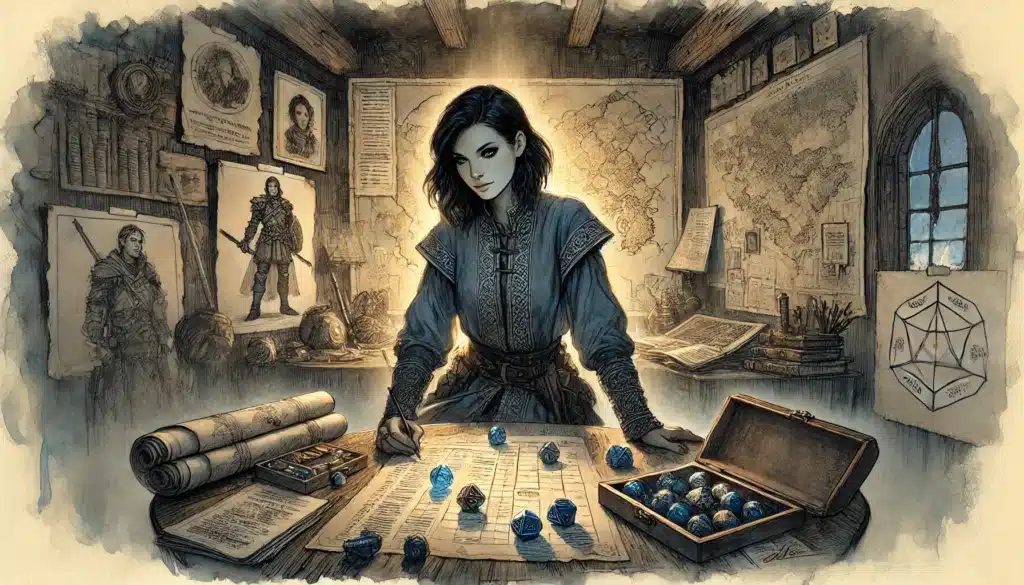
3. Custom Magic Items with Lore
Nothing says “this adventure is yours” like a unique magical artifact tailored to a character’s journey. Veteran players feel increasingly detached from generic loot; a +1 sword inspires less awe than a dagger that’s whispered in the legends of a haunted family. Custom loot offers a chance to infuse tangible rewards with narrative gravity—sentient weapons, evolving relics, or enchanted tools tied to pivotal events.
Craft magic items that resonate. Perhaps the party’s bard earns a lyre plucked from a banshee’s lair, each string echoing the wails of ghosts. Maybe the fighter’s battered shield is reforged from the armor of a fallen ally, growing in power as the character achieves heroic deeds. Gear with evolving abilities or strange personalities can become both boon and burden, weaving drama directly into adventuring gear.
Inventiveness outshines raw power. A sword that remembers everyone it has slain, or a cloak forever tinged with the fog of a deadly battlefield—these objects invite stories. Modular or upgradeable items can reflect a character’s choices, evolving through milestones, story events, or even emotional growth.
Try these 12+ custom item ideas to fire your players’ imaginations:
- A dagger that grows sharper and more cunning after each betrayal it commits.
- A shield crafted from a fallen companion’s armor, surging with protective magic in times of loss.
- Boots that allow silent movement after the wearer confronts a past fear.
- A sentient ring that only grants its powers during moments of self-doubt.
- A cloak that can phase through walls once per day, infused after a spectral encounter.
- Gauntlets that glow with runes each time an ancient riddle is solved.
- A staff woven from the branches of a cursed druid’s grove, hungering for redemption.
- Amulet that tightens when lying, but charms when telling hard truths.
- Lantern fueled by the last memory of a forgotten god, shining only in utter darkness.
- Arrows whose tips blaze with the soul-fire of vanquished wraiths.
- Helm that grants visions of enemies’ past, but only when the wearer faces death.
- A locket that animates shadowy illusions from childhood nightmares.
- Quiver containing one arrow that inevitably returns after each full moon.
Flavor and story resonance should always outweigh sheer mechanical force. These items are rewards to be remembered and cherished, not just new stats on a page.
DMs should use custom magic to cement unforgettable moments—loot that becomes a legend within the legend. Let characters shape the artifacts as much as the artifacts shape them. Over time, this approach celebrates a campaign’s memories rather than just its math.
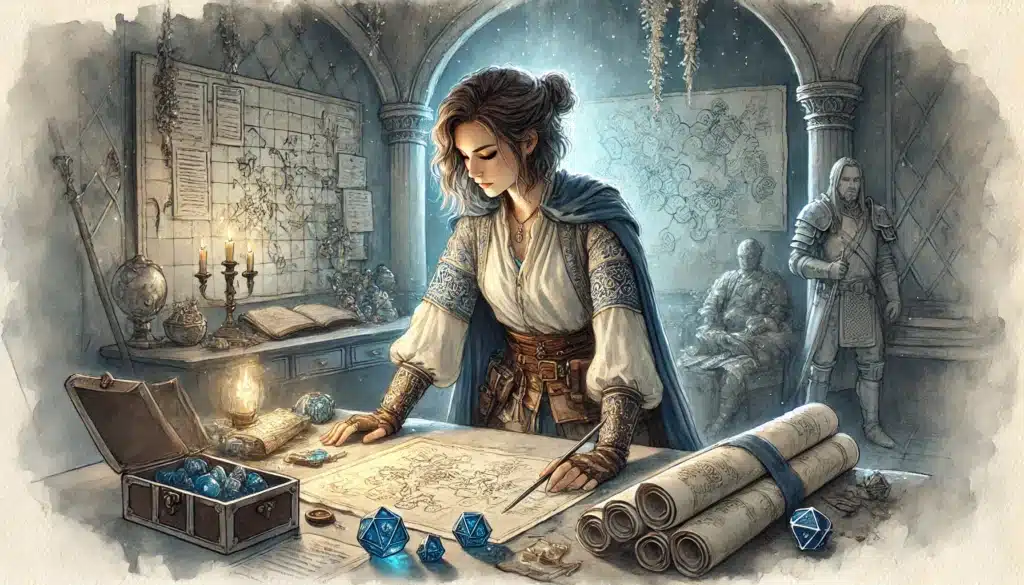
4. Leadership Opportunities
To some players, nothing is more rewarding than the chance to lead—be it a scrap of motley refugees, a hidden enclave of mages, or the party itself. Leadership rewards bestow responsibility and tangible agency, transforming characters from wandering adventurers into real movers and shakers. They raise the stakes and invest players deeply in the campaign’s outcomes.
⚔️ Fantasy RPG Random Tables Books
Make life as a Gamemaster easier…
If you play Dungeons & Dragons, Pathfinder, or other fantasy RPGs, this
RPG random tables series
is packed with encounters, NPCs, treasure, and more. Available in eBook or print—either way, you’ll have a wealth of adventure ideas at your fingertips.
A new leader suddenly becomes accountable for decisions that may spark war or usher peace. Juggling the concerns of followers, resources, or traditions forces the player to think in new ways—balancing risk, loyalty, and reputation. Even reluctant leaders can find surprising satisfaction in shaping events beyond the sword or spell.
These roles need not be grandiose. Tutoring a young protégé, commanding a merchant caravan, or rallying frightened villagers can be just as impactful as running a guild. Leadership brings drama and consequence, giving players attached NPCs and pressing dilemmas.
Consider these 10+ leadership reward ideas:
- Commanding a battle-scarred militia as they reclaim their homeland.
- Tutoring a promising but troubled young sorcerer.
- Leading a fledgling cult devoted to an ambiguous cause.
- Organizing an adventurers’ guild with a unique charter.
- Appointed as head librarian in a secretive arcane repository.
- Turning an unruly pirate crew into a disciplined force.
- Founding a resistance cell resisting foreign occupation.
- Serving as headmaster at an enchanted academy.
- Conducting a diplomatic envoy to unify rival tribes.
- Overseeing the security of a magical vault that holds world-ending secrets.
- Mentoring a squire set on avenging their family.
- Chairing a tribunal that regulates dangerous magic in urban centers.
Leadership rewards allow players to leave marks on the world. Group decisions, hard choices, and triumphs become stories that ripple through NPC lives and the campaign itself.
Even temporary or evolving leadership roles boost engagement, as players see the world change under their stewardship. Legacy, reputation, and high drama are no longer reserved for NPCs—they’re what set player heroes apart.
5. Unique Mechanical Perks
Sometimes, the most satisfying rewards are a touch of mechanical novelty that doesn’t break the game. These perks—minor, flavorful, and thematically earned—satisfy veteran players’ cravings for uniqueness, without the runaway bloat of new feats or raw stat boosts. They also reward creativity and narrative engagement in a way that levels alone can’t.
The trick is to tie perks to story or actions. Maybe a rogue who’s escaped death too many times can automatically act first in initiative once per day. Perhaps a paladin, unbowed in defiance, gains advantage on checks to defend their allies for the next moon cycle. Perks should feel like the natural result of who the character is, or what they’ve accomplished.
Perks can be supernatural, skill-based, or purely social. The knowledge of a forgotten codeword, the power to always find a hidden door, the ability to cast a cantrip tied to their travels—each grants a tangible sense of growth and distinction. These gifts shine brightest when constrained: once per session, under special circumstances, or with story-developed limitations.
Explore these 12+ unique mechanical perks:
- Always goes first in initiative during the first combat of the day.
- Gains advantage when protecting or defending allies nearby.
- Once per day, recover a low-level spell slot as a moment of inspiration strikes.
- Able to speak, read, and write a secret language no one else knows.
- Automatically succeeds on navigation checks in their home region.
- Senses the surface thoughts of a specific foe due to a psychic link.
- Can cast a unique, non-combat cantrip related to their hometown.
- Once per long rest, can cast a ritual even without material components.
- Can always detect lies told in a particular city or faction.
- Gains resistance to damage dealt by family or blood relatives.
- May reroll a failed saving throw, but only in defense of a core personal ideal.
- Automatically recognized as an honorary member in one unique organization.
- Has perfect memory for conversations had in a tavern, no matter how drunk.
Handled with care, mechanical perks are a dash of narrative flavor and player distinction. They encourage personal roleplay, provide cool moments, and fade naturally back into the fabric of the story.
Stick to small, limited-use perks with clear narrative ties and boundaries. The magic isn’t in bending numbers—it’s in giving characters edges that feel hard-earned and meaningful.
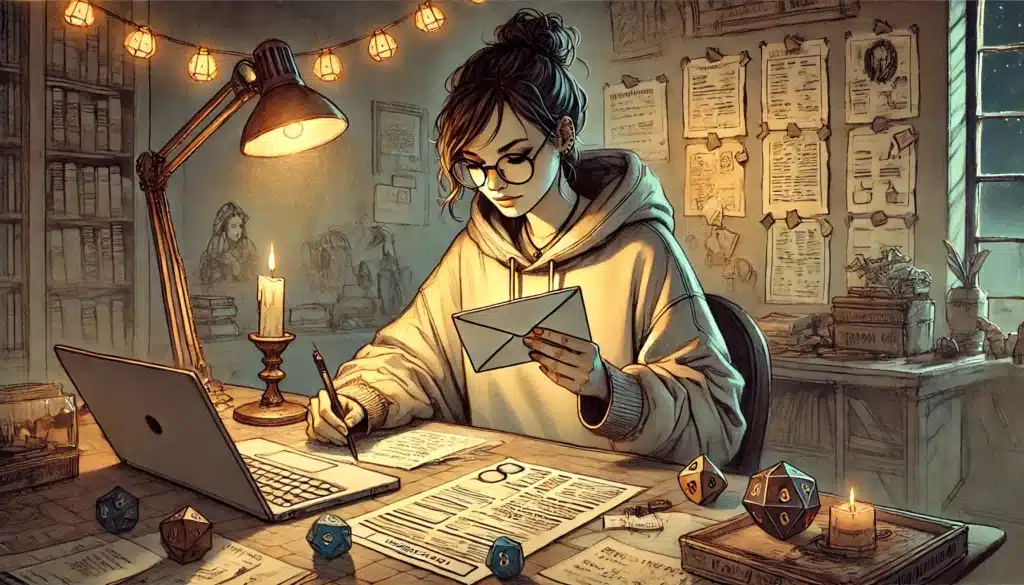
6. Property and Holdings
For seasoned adventurers, swords and songs are just the beginning. Tangible rewards—homes, shops, keeps, or even magical vessels—anchor characters in your world and invite them into new realms of play. A property is more than a static reward: it’s a base for schemes, friendships, and future storylines.
Owning land or a building transforms the campaign’s rhythm. Players might manage resources, recruit staff, defend against rivals, or host clandestine meetings. Properties can serve as adventure hubs, safe havens, storytelling stage, or even recurring sources of peril. The relationships, responsibilities, and vulnerabilities are as interesting as any magic item.
Custom properties can reflect characters’ values and ambitions. The cleric cleanses a cursed chapel; the artificer inherits a skyship workshop. These gifts come loaded with hooks—hauntings, lawsuits, taxes, vengeful neighbors, or rare opportunities for expansion.
Here are 10+ property-based rewards you can grant:
- Haunted estate with secrets in every room.
- Workshop atop a skyship, ideal for tinkering and aerial travel.
- Underwater glass dome in a merfolk-dominated lagoon.
- Ramshackle tavern in a city’s shadiest quarter.
- Dilapidated temple ripe for restoration—or possession.
- Farmstead adjacent to mysterious standing stones.
- Tower on a windswept peak, battered by storms.
- Market stall in the heart of a thriving metropolis.
- Secret mountain hideout left by an infamous thief.
- Private theater attracting eccentric performers and spies.
- Arcane sanctum disguised as a public bathhouse.
- Row of apartments filled with renters—and intrigue.
Property roots characters in your setting, giving them cause to return, defend, and upgrade. It offers visible proof of accomplishments and opens infinite doors for side quests, NPC development, and player-driven plots.
Unlike simple loot, owning land or business is a dynamic prize—one that grows and changes as PCs invest in it. The most memorable campaigns often orbit the places players can truly call their own.
7. Legacy and Reputation
When epic quests come to a close, experienced players crave more than gold—they yearn for lasting legacy. Tales whispered in taverns, statues in marketplaces, or festivals that immortalize heroics—these rewards outshine any XP tally. By etching characters’ deeds into the world’s collective memory, DMs make their choices truly matter.
Legacy is not just public adoration. It could be a rumor, an infamous ballad, or even a hated monument. Players might be celebrated as saints or reviled as tyrants, subject to evolving stories that color new adventures. The world’s reaction has real consequences: allies, enemies, rivals, or renewal of their quest.
Public recognition stirs both pride and fresh drama. Maybe the bard’s name becomes synonymous with liberty, but a vengeful survivor twists their tale. A mage’s statue could inspire hopeful apprentices—or jealous rivals. These marks on the world are often unpredictable, creating opportunities for reflection, humility, and further growth.
Try my AI Tabletop RPG generators...and an extensive library of content!
Below is a table with 10 examples of location, recognition, and possible perks/consequences:
| Location | Legacy Recognition | Perks / Consequences |
|---|---|---|
| Stormwatch Keep | Tower named after the party | Free room/board; target for attacking armies |
| Ironport | Annual festival held in their honor | Discounts with merchants; thieves see them as rivals |
| Eldergrove | Bard’s ballad sung at all feasts | Advantage on social checks; stalked by obsessive fans |
| Riverdale | Statue in town square | Local fame; ignored by jealous city nobles |
| The Umbral Hills | Spooky legend recited by children | Treated as folk hero; blamed for nearby disappearances |
| Silverhold Academy | Hall named after wizard’s exploits | Apprentices seek mentorship; academic politics ensue |
| Dragon’s Rest Inn | Ale named after rogue’s deed | Free drinks; drunken challenges from upstart adventurers |
| Kingsbay | Day of Remembrance public holiday | Temporary noble title; bound by annual ceremonial duties |
| Shadowspire City | Their story chronicled in library | Easier access to knowledge; targeted by political rivals |
| Emberlight Village | Church bell forged in their name | Clerical favor; sanctimonious critics |
Reputation rewards reinforce that player actions echo far beyond a single quest. When a town celebrates—or curses—a PC’s deeds, it provides satisfaction, motivation, and the occasional plot twist.
Consider introducing legacy moments after big victories or costly stumbles. Reflection and consequence make characters feel deeply tied to the world, and ensure no adventure ever fades completely into memory.
8. Access to Forbidden Knowledge
Few rewards captivate seasoned players quite like secrets. The right bit of forbidden knowledge can open hidden roads, unravel ancient plots, or change a campaign’s arc overnight. Treat knowledge as both a boon and a burden: insight always carries a price, and new revelations may haunt as much as they help.
The form this takes can vary tremendously, from whispered demonic contracts to the true names of gods. Perhaps a player earns access to a forbidden spell, uncovers maps of lost realms, or learns a secret history that will upend the world—or themselves. Use knowledge to fuel curiosity, conflict, or personal trials.
Secrecy itself can be a potent hook. Characters may be forbidden from sharing their knowledge, or hunted for what they know. A revealed truth might cause hope in some quarters, terror in others. Forbidden knowledge rewards should rarely feel “safe,” but rather dangerous opportunities for clever, invested play.
12+ examples of powerful secret knowledge rewards:
- Ancient demonic contract that binds a city to hellish interests.
- Map revealing the portals to a forgotten, unstable plane.
- True history behind a fallen god—truths lost to all but the player.
- Ritual that can undo a curse, but at immense cost.
- Name of a secret society operating in the heart of the empire.
- Cipher granting access to an elite wizards’ archive.
- Knowledge of an arcane weakness in a supposedly invincible monster.
- Step-by-step process for crafting an extinct magic item.
- Prophecy foretelling a coming calamity only the PC can prevent—or cause.
- A hidden language that causes madness in listeners.
- Instructions for opening a locked vault containing a world-shaking relic.
- Written correspondence revealing the location of a lost heir.
- Forbidden love letters between two gods, launching a divine feud.
Treat knowledge as subtle power—sometimes cryptic, always meaningful. It opens doors but begets risks, new rivals, or severe consequences. Its true value often emerges over time.
⚔️ Fantasy RPG Random Tables Books
Make life as a Gamemaster easier…
If you play Dungeons & Dragons, Pathfinder, or other fantasy RPGs, this
RPG random tables series
is packed with encounters, NPCs, treasure, and more. Available in eBook or print—either way, you’ll have a wealth of adventure ideas at your fingertips.
Players will savor the sense of discovery, but also the creeping realization that some secrets are better left undisturbed. This keeps campaigns fresh with new mysteries and high stakes.

9. Unique Allies and Companions
Veteran PCs often crave meaningful allies—not hirelings, but NPCs and creatures with quirks, flaws, and story potential. A true companion can be a steadfast bodyguard, a brilliant foil, a catalyst for chaos, or simply the friend who gets you out of jail at 3am. These NPCs often become inseparable from a character’s legend.
Such companions are rewards for trust, mercy, or clever persuasion. Maybe the party saves a rival assassin, who later becomes an indispensable informant. Perhaps a rescued familiar returns the favor in ways no one could predict. Companions can introduce new skills, drama, or comic foil—while also complicating quests and choices.
Make allies diverse in tone and type. A feral blink dog and a highborn fey princess should feel different—each with their own story, agenda, and growth. The best companions aren’t free sidekicks; they come with their own needs and sometimes their own trouble.
12+ memorable companion ideas:
- A reformed assassin with a complicated past.
- Animated suit of armor housing a lost soul.
- Grumpy kobold who thinks they owe the PC a life debt—and won’t go home.
- A rival-turned-frenemy with mutual goals.
- Sarcastic talking sword obsessed with glory.
- Dragon whelp with a grudge and a taste for pranks.
- Old mentor returned as a ghost only one PC can hear.
- Fae trickster always just on the verge of betrayal.
- Elusive changeling whose appearance is never the same twice.
- A warhorse touched by prophecy (smarter than it lets on).
- Satyr bard now cursed to speak only in riddles.
- Runaway prince disguised as a lowly squire.
- Artifact-mimic pretending to be a faithful magical item.
Variety is critical—mix humor, gravitas, and utility. Let companions challenge players, force tough decisions, or steal the scene. Their value lies in how much they feel earned.
A companion’s story can become as compelling as the PCs’ own. Consider how their growth intertwines with the broader campaign, and how their loyalty (or lack thereof) can shape future quests.
10. Character Milestones Without Leveling
Not every moment of greatness needs to be measured in levels or XP. Some of the most resonant triumphs come as unique character milestones—internal, thematic, or transformational, marked by meaningful accomplishment or profound change.
These might be personal vows, the completion of sacred quests, or moments of revelation. Perhaps a PC achieves a stirring transformation—a reformed villain, a new faith, or the acceptance of a curse. The point is not numbers, but the satisfaction of shaped identity and moral consistency.
Milestones are excellent motivators between levels, providing new facets of identity, powers, or recognition without upending balance. Maybe a rogue atones for their crimes, or a barbarian finds spiritual peace. These moments can underpin new story arcs and inspire group cohesion.
Try these 12+ milestone rewards:
- Becoming a paladin by act, not by divine ceremony.
- Achieving inner peace, granting immunity to magical or mundane fear.
- Completing a magical pilgrimage across the planes.
- Forging a bond with a spirit guide (granting rare advice or visions).
- Swearing and upholding a personal code of honor.
- Accepting and controlling a once-feared curse.
- Publicly confessing a secret or crime, and surviving the fallout.
- Winning the heart of a legendary figure (platonic or romantic).
- Escaping a lifelong phobia or curse via roleplay and sacrifice.
- Reclaiming an ancestral family name and rank.
- Breaking the chains of an old oath or obligation.
- Undergoing a ritual transformation (e.g., lycanthropy, death, rebirth).
- Uniting rival family members for the first time in generations.
For veteran players, these achievements offer closure, new arcs, or the chance to redefine what their character stands for. The journey itself becomes the reward, making the next adventure even more meaningful.
Milestones become cherished memories, small victories that both challenge and satisfy. They serve as stepping stones toward greater tales, rather than mere XP pauses.
11. World-Altering Choices
Perhaps the most thrilling reward you can bestow is power over destiny itself. For experienced players, few things rival the gravity of decisions that permanently reshape the world—whether it’s resolving ancient feuds, toppling tyrants, or triggering magical calamities.
World-altering choices should be earned and fearsome, never cheap. Make the stakes and their consequences clear, and let players feel the weight of their actions. Great change might avert war, unleash demons, or dissolve kingdoms. Such choices give meaning to every prior session, every hard-won alliance or bitter rivalry.
They needn’t be cataclysmic to matter. Even resolving the fate of a minor guild can ripple outward in surprising ways. The best options are those the party has worked toward—hard-bought wins, seeded throughout the story, that only come into play after long effort or sacrifice.
10+ examples of world-altering choices:
- Toppling a corrupt regime and installing a new government.
- Sparing a controversial monster, who later becomes a legendary protector (or menace).
- Triggering a planar shift through dangerous collective ritual.
- Binding or freeing a long-imprisoned deity.
- Initiating peace between warring nations through marriage or alliance.
- Unleashing a magical plague in hopes of removing a greater evil.
- Granting citizenship or rights to a long-persecuted race.
- Destroying a magical artifact that kept an ancient evil at bay.
- Betraying their own faction to prevent greater bloodshed.
- Ending a century-old curse—knowing the cure could spark civil war.
- Revealing a scandal that topples a ruling house.
- Building a new city upon the ruins of a destroyed one, setting new traditions.
World-shaping choices affirm player agency while making every session feel consequential. Never rush these decisions—let them develop, stoke the tension, and narrate their aftershocks for many games to come.
Rewards like these transform campaigns into living worlds—real consequences, real drama, and player stories that outlast any old XP bar.
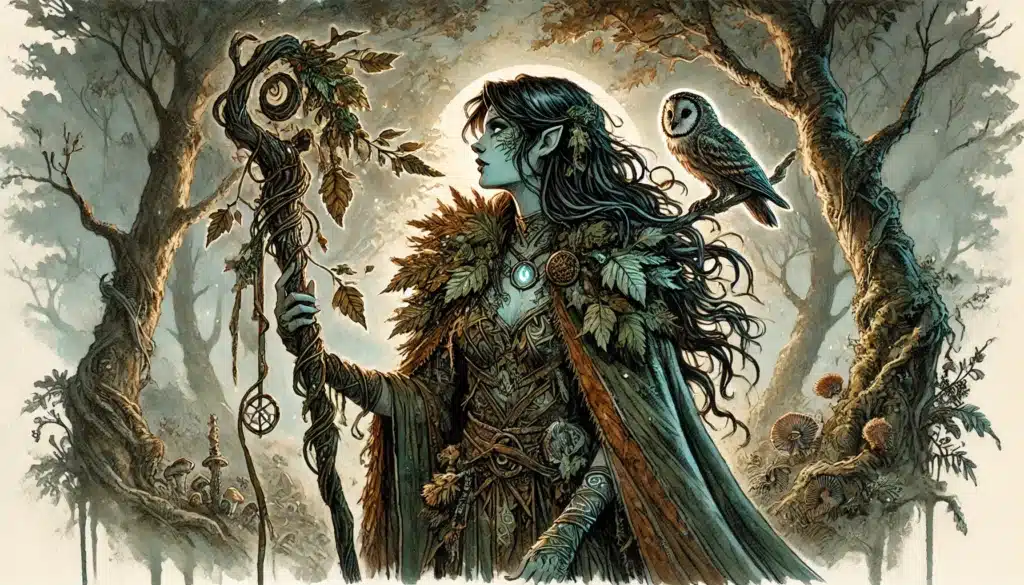
Final Thoughts on Non-XP Rewards
Veteran players follow their hearts, their schemes, and their scars, not the promise of a higher number on a sheet. At your table, XP is just the simplest currency—narrative, agency, and resonance are worth far more. The 11 tools above give you, the DM, the means to reward every kind of greatness: clever choices, heroic risks, and forged identities.
Don’t worry about outpacing character levels or doling out more gold. Instead, escalate meaning. Give rewards that feel personal—stories resolved, rivals won, worlds changed. Make each treasure a memory, each consequence a tale whispered by torchlight, each ally or enemy a living puzzle.
The best rewards reflect the player as much as the character. They acknowledge real investment, creativity, and growth. When the game respects what each table values—laughter, tragedy, rivalry, redemption—it elevates everyone’s investment and joy.
Most of all, watch what your players chase. Ask where they’re leaning, what they fight for when the chips are down, whose name they mutter in darkest night. Build rewards that speak to those truths, and your stories will echo long after the dungeon’s last door is closed.
In the end, non-XP rewards are not just embellishments; they’re the lifeblood of masterful campaigns—proof that even the oldest heroes have new horizons left to claim.

